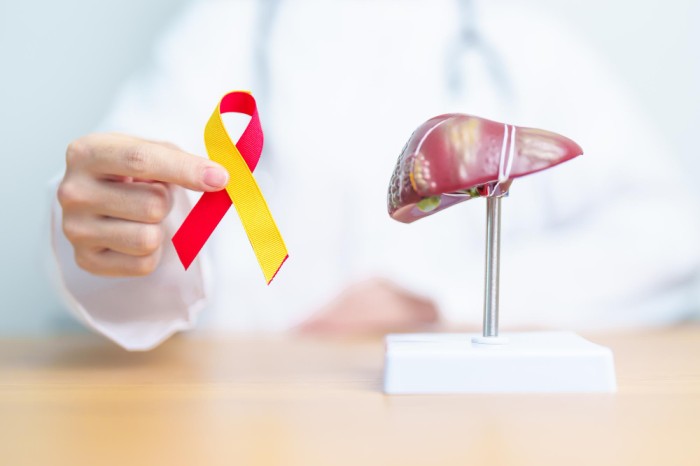The liver plays a crucial role in the body's metabolism, detoxification, and immune defence. However, chronic liver diseases such as hepatitis and fatty liver disease can significantly increase the risk of liver cancer, specifically hepatocellular carcinoma (HCC). Understanding the link between these conditions is essential for early detection and prevention.
The Connection Between Hepatitis and Liver Cancer
Hepatitis is liver inflammation caused by viral infections, alcohol consumption, autoimmune diseases, or certain medications. Chronic viral hepatitis, particularly Hepatitis B (HBV) and Hepatitis C (HCV), is a major risk factor for liver cancer.
Hepatitis B Virus (HBV): A Silent Killer
HBV is a leading cause of liver cancer worldwide. It spreads through blood, unprotected sexual contact, and from mother to child during childbirth.Chronic HBV infection causes long-term liver inflammation, leading to cirrhosis and hepatocellular carcinoma (HCC), the most common form of liver cancer.
Prevention
Vaccination against HBV is highly effective in reducing liver cancer risk.
Hepatitis C Virus (HCV): A Hidden Threat
HCV often remains undetected for years, causing silent liver damage.It is primarily transmitted through blood-to-blood contact, such as sharing needles or receiving unscreened blood transfusions.Chronic HCV infection leads to cirrhosis and liver cancer.
Treatment
While there is no vaccine, antiviral medications can effectively eliminate HCV and reduce liver cancer risk.
Fatty Liver and Liver Cancer
Fatty liver disease occurs when excess fat accumulates in the liver, leading to inflammation, fibrosis (scarring), and potential cancer development. There are two main types:
Alcoholic Fatty Liver Disease (AFLD): Linked to Liver Cancer
FLD is caused by excessive alcohol consumption. It leads to liver inflammation (alcoholic hepatitis), cirrhosis, and increased liver cancer risk.
Prevention
It is possible to reverse early-stage AFLD by reducing alcohol intake and adopting a healthy lifestyle.
Non-Alcoholic Fatty Liver Disease (NAFLD): The Lifestyle Epidemic
NAFLD is associated with obesity, diabetes, high cholesterol, and metabolic syndrome. It can progress to non-alcoholic steatohepatitis (NASH), leading to cirrhosis and liver cancer.
Prevention
You can prevent NAFLD by maintaining a healthy weight, eating a balanced diet, and staying active.
Three Ways Hepatitis and Fatty Liver Disease Lead to Liver Cancer
- • Chronic Inflammation : Long-term liver inflammation damages liver cells and increases cancer risk
- • Fibrosis and Cirrhosis : Persistent inflammation causes scarring (fibrosis) and cirrhosis, a major risk factor for liver cancer
- • Tumour Formation : Continuous liver damage leads to abnormal cell growth, resulting in hepatocellular carcinoma
How to Protect Your Liver
Stay One Step Ahead with Regular Screening
Individuals at high risk (hepatitis patients, obese individuals, diabetics, and heavy drinkers) should undergo routine liver function tests and imaging (ultrasound, MRI, or CT scans) to detect early signs of liver disease and cancer.
Take Proactive Steps to Lower Liver Cancer Risk
- • Get Vaccinated : The HBV vaccine is a powerful tool in preventing hepatitis B-related liver cancer.
- • Adopt a Healthy Lifestyle: Eat a liver-friendly diet rich in fruits, vegetables, and lean proteins.
- • Limit Alcohol and Avoid Smoking : Reducing alcohol intake and quitting smoking can significantly lower liver disease risks.
- • Exercise Regularly : Physical activity helps manage weight and reduces fatty liver disease risk.
- • Seek Medical Care : If you have hepatitis or NAFLD, consult a liver specialist at Zanish Cancer Hospital for expert guidance and treatment.
Why Choose ZanishCancer Hospital?
At Zanish Cancer Hospital, we are committed to providing cutting-edge liver cancer treatment, advanced diagnostics, and personalized preventive care. Our expert team specializes in early detection, innovative therapies, and holistic patient support to ensure the best outcomes.
Book Your Liver Health Check-Up Today!
Don’t wait for symptoms—early detection saves lives! Schedule your consultation with our liver specialists now.





